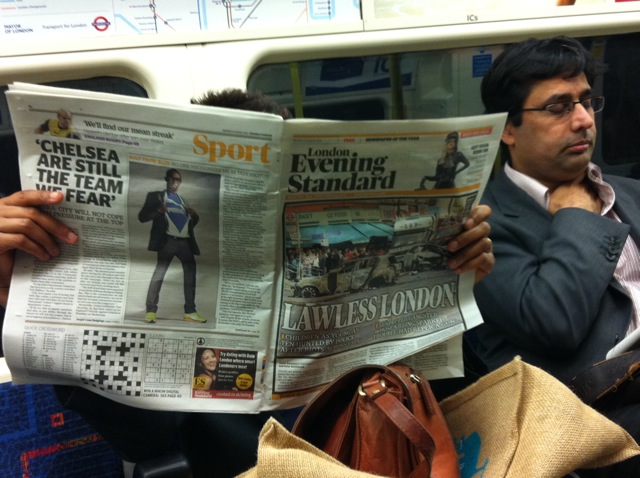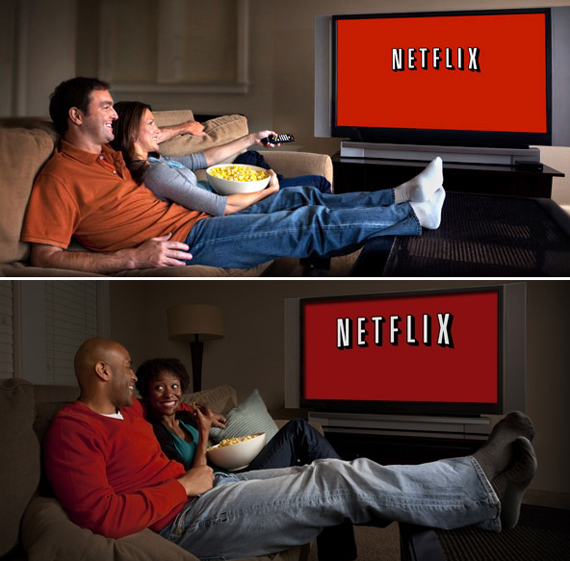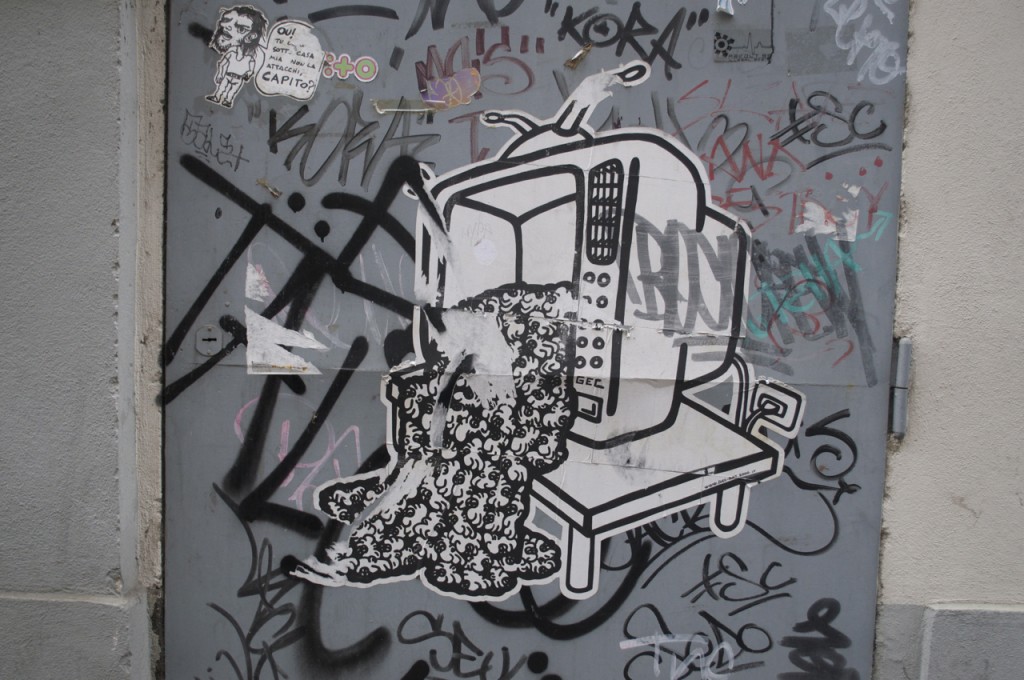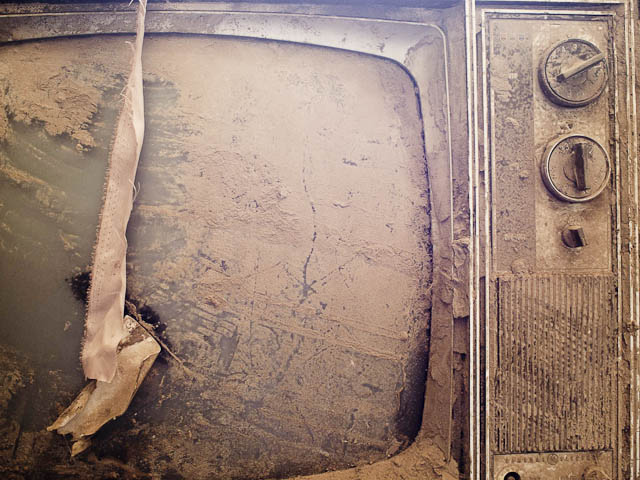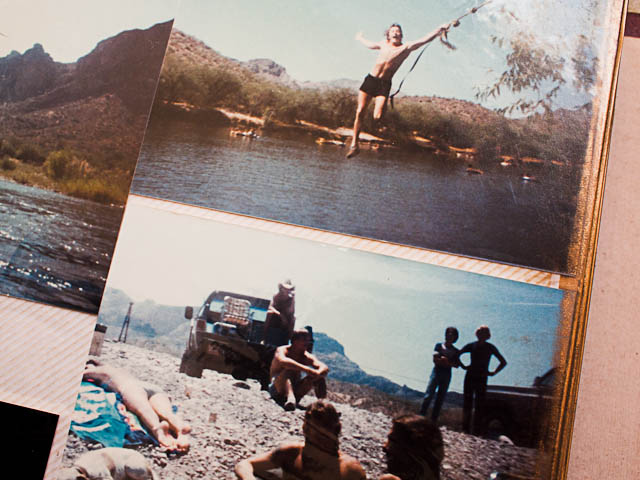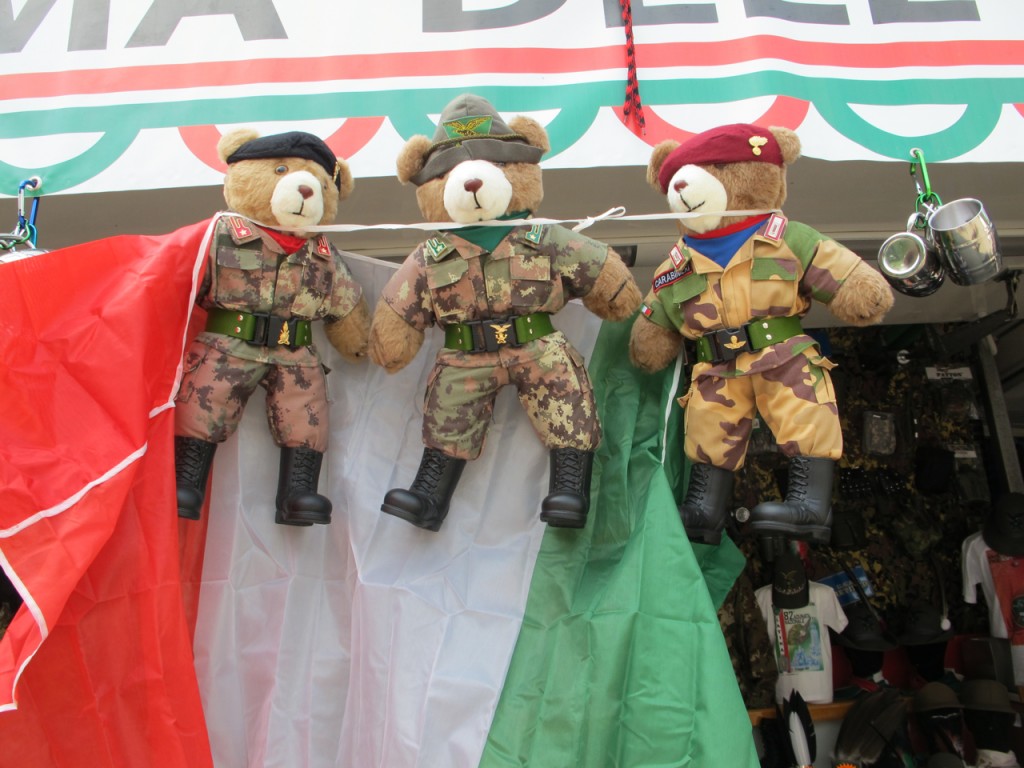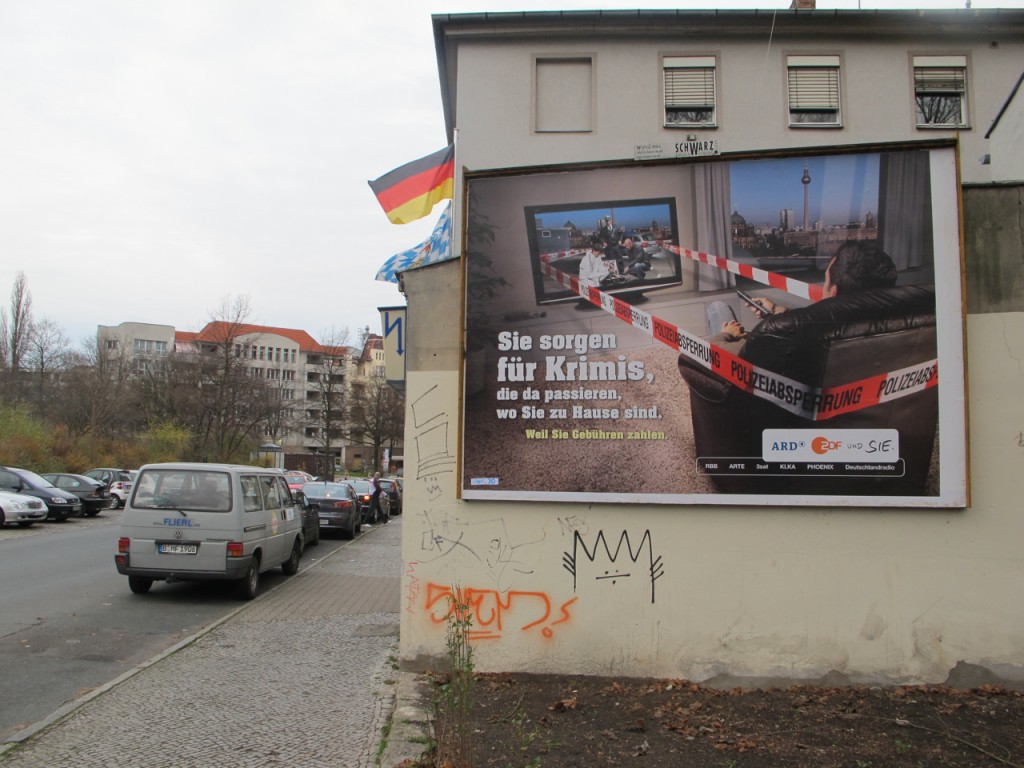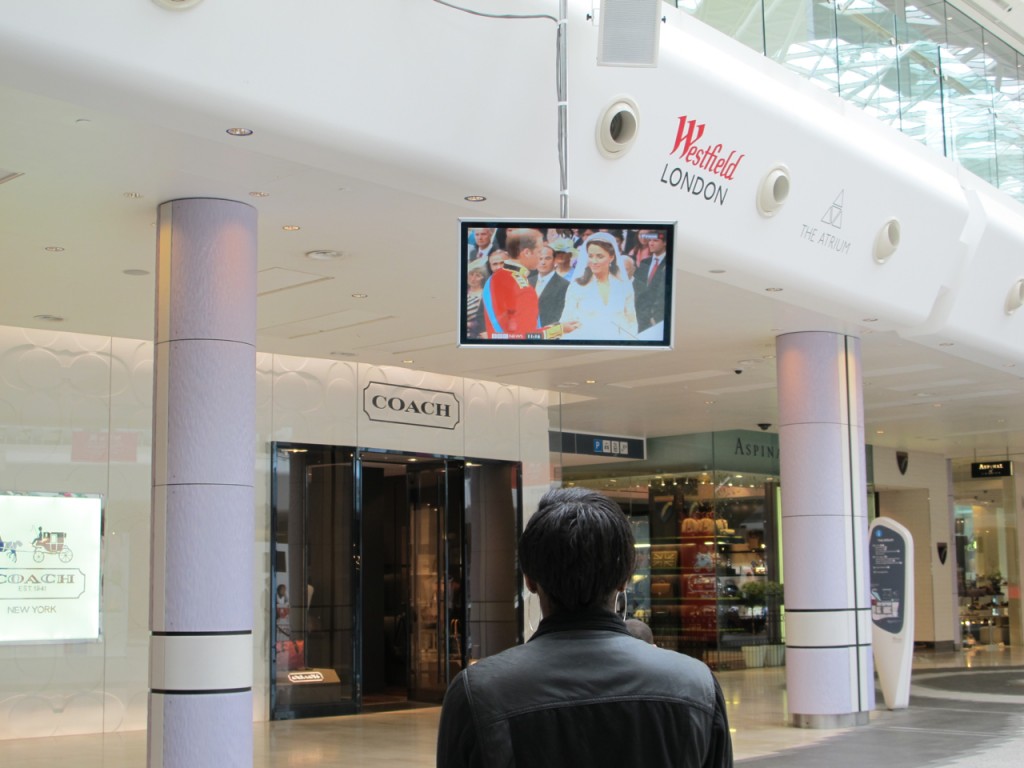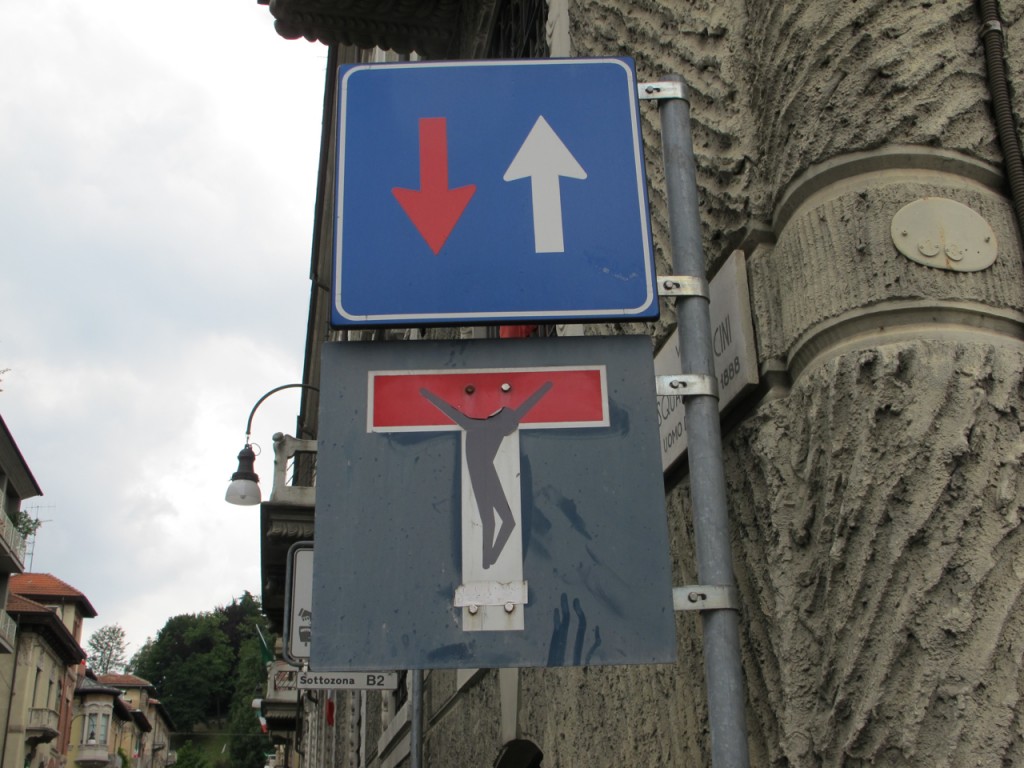During the four and a half years that I lived in London, I always found that I did my best reading on the tube. Not necessarily of my own books or periodicals (though I always had one or the other on me) but the newspapers I found other passengers reading. As an immigrant youngster, at first I imagined that the headlines I encountered represented the opinions of the British. As I grew older, and began returning to the country as a journalist, I of course learned otherwise. (More…)
Visual
Netflix recently came up with a creative way to charge its customers more: by separating their mailing and streaming content into separate rental plans that “better reflect the costs of each.” One can only imagine how well the already over-compensated marketing strategist who came up with that line was rewarded for it. His shit-eating grin must be even browner around the edges than usual. “Now our members have a choice: a streaming only plan, a DVD only plan, or both.” (More…)
After eighteen years, the television couldn’t contain his image any longer. Post-elections street art, central Turin. June, 2011.
Television sets: almost every house has one. When we’re out in the mining towns of southern Arizona photographing the wreckage of the American Dream, there are some things that we always find. Refrigerators, beds, stoves, sofas, clothing, knickknacks, pots and pans sit in the abandoned houses scattered across the Copper Belt, ghosts of a domestic life once lived and now long gone. (More…)
The Green Wave, a new documentary directed by Ali Samadi Ahadi, tells the wired and informed what they already knew. It recounts the groundswell of support for Iranian presidential candidate and one-time Prime Minister Mir-Hossein Mousavi, whose chosen campaign colour of green gives the film, not to mention the historical event (The Green Revolution) its name. (More…)
You have to savor the cross, and its proximity to ‘bacteria’. Euronews carries the most memorable adverts on British cable television. April, 2011.
When coming across photos of anonymous people, it is impossible not to relate them to our own lives and memories somehow. Often we have an intense positive or negative response to the people looking out of these photographs and the history they represent. The universality of life represented in the photographs — birthdays, weddings, family vacations — crosses economic and gender boundaries.
What we see in photos are events of life and the emotional record of those events. Traces of personal identity become blurred with our own relationship to the events. (More…)
The morning I returned from the US, every paper was carrying the same cover story: Six Italian soldiers had been killed by a suicide bomber in Kabul. Corriere Della Serra, La Repubblica, even the local edition of The Metro, all seemed to be working with the same set of photos of the event’s aftermath. For the first time since we’d moved to Milano, it was like overhearing an entire country sighing, simultaneously. From left to right, the reaction was the same. Everyone was in a state of shock. (More…)
Germans pay € 215.76 in annual licensing fees to watch TV. This advertisement, affixed to the side of a building in Berlin’s Neukölln district, discourages viewers from not paying their fees, by casting them as participants in a crime series.
The other day, a friend of mine asked me to share what media I’d been taking in lately. Even though it was a logical request, I was reluctant to respond. Instead of keeping tabs on new releases, I’ve been spending my limited time and money indulging in familiar pleasures: Haruki Murakami’s A Wild Sheep Chase, Bruce Springsteen’s Born To Run, and just about everything to do with J.R.R. Tolkien. (More…)
Television is inextricably linked with public space. Everywhere you go, you’re never not in front of a screen. Whether it’s at a restaurant or a bar, on passenger jets, or waiting for a train, the experience is the same. Watching the Royal Wedding. Westfield Mall, London. April 29th, 2011.
The martyr is a universal archetype. Someone who dies for a cause, someone who is victimized for their beliefs. Every society has one. Blame it on religion. Blame it on backward concepts of national identity, of personal sacrifice. It would be a relief if we could somehow rid ourselves of the notion that we might give our lives for a greater good, when that ‘good’ is usually questionable. (More…)
